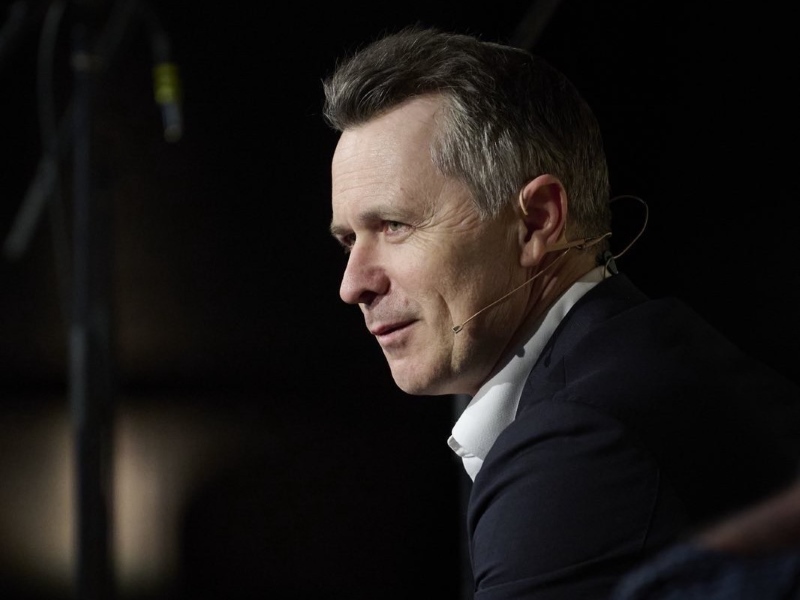A landmark review of higher education has called for sweeping changes to the university research system after finding Australia’s governments and industries are not making enough use of the innovation, or fully investing in it.
A final report form the year-long Universities Accord process was published Sunday, recommended a root and branch review of national research funding, a new strategy, official targets for R&D share of GDP, and the full funding of research projects.
Governments must also procure more research themselves, increase funding for fundament research, and should reward universities that demonstrate impact.
A new $10 billion Higher Education Future Fund – the main revenue raising proposal in the Accord – would contribute to increased research costs.
But it is facing early opposition from prestigious universities that would be required to contribute more to the fund.

While research barely rated a mention in the Accord interim report, it received half a dozen specific recommendations in the final report that warns a more sustainable higher education system is needed to deliver a more skilled workforce.
The final report recommends that at least 80 per cent of the workforce will need a university or VET qualification by 2050. Currently, it sits at 60 per cent.
“The Accord will help to drive this change. It will help us build a better and fairer education system where no one is held back, and no one is left behind,” Education minister Jason Clare said.
The Accord confirmed Gross Research and Development (R&D) expenditure in Australia is low for an advanced economy, having trended down since 2008 while others climbed up.
Research outputs are also underutilised in Australia, according to the report.
“Australia’s governments and industries are not making enough use of university research capability and capacity,” it said.
To encourage more investment and uptake the Accord has recommended a strategic examination of national research funding that leads to a multi-agency government strategy.
The new plan would include formal targets for lifting R&D as a proportion of GDP. Labor has committed to increasing R&D’s share of the economy during the election campaign and in its party platform, but there are no official government targets yet.
The government has released the Accord report but has not immediately committed to any of its 47 recommendations that put the onus on governments to inject billions more into the sector.
The Accord also backs the university sector’s long running requests for more dedicated fundamental research funding and for the full cost of research to be covered by governments and industry when they order it.
“This is not just to allow more and better research, but to free up funding so that universities can invest in other priorities like learning and teaching and infrastructure, to support growth,” the Accord said.
“Fully funding research would also reduce the currently excessive pressure on universities to secure international student revenue.”
The Group of Eight universities – with members that invest almost $8 billion in research – had told the Accord its members are currently covering more than half of research project costs through their General University Funds — largely from international student fees.
A new ‘Higher Education Future Fund’ should be established to help pay for university infrastructure, including some of the costs of university research.
The Accord recommended it be controlled by the Future Fund Board of Guardians and aim for $10 billion in assets, initially seeded by Commonwealth and university co-contributions.
“Importantly, the design of the sector contribution should account for universities’ capacity to contribute – those universities with the financial means to pay a higher proportion should be expected to do so,” the report said.
Sydney University vice chancellor Mark Scott, who chairs the elite Group of Eight universities, reportedly said the “shortsighted” proposal was a “tax dressed up as a fund” and that the Go8 would lobby against it.
The Accord also recommended governments to be an exemplar in using universities and their research to help solve nation’s pressing economic, social, health and environmental problems, while at the national level a new Research Investor Forum would link industry groups with universities to expose their research needs.
A new Solving Australian Strategic Challenges Fund could also highlight the potential of university research by rewarding the institutions that demonstrate “exceptional performance” in developing and using their research capacity.
The Australian Academy of Science welcomed the calls for a thorough review of research funding and new national strategy, both of which it has been pushing the government for.
“The report underlines the critical need to modernise our national science and innovation system,” Academy President Professor Chennupati Jagadish said.
Wider sector group Universities Australia welcomed the report but reserved judgement on Sunday.
“A report of this scale, nature and consequence requires appropriate and thorough interrogation and reflection as we consider what we would like to see prioritised in the government’s response,” UA chief executive Luke Sheehy said.







